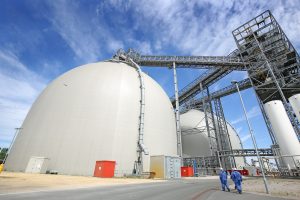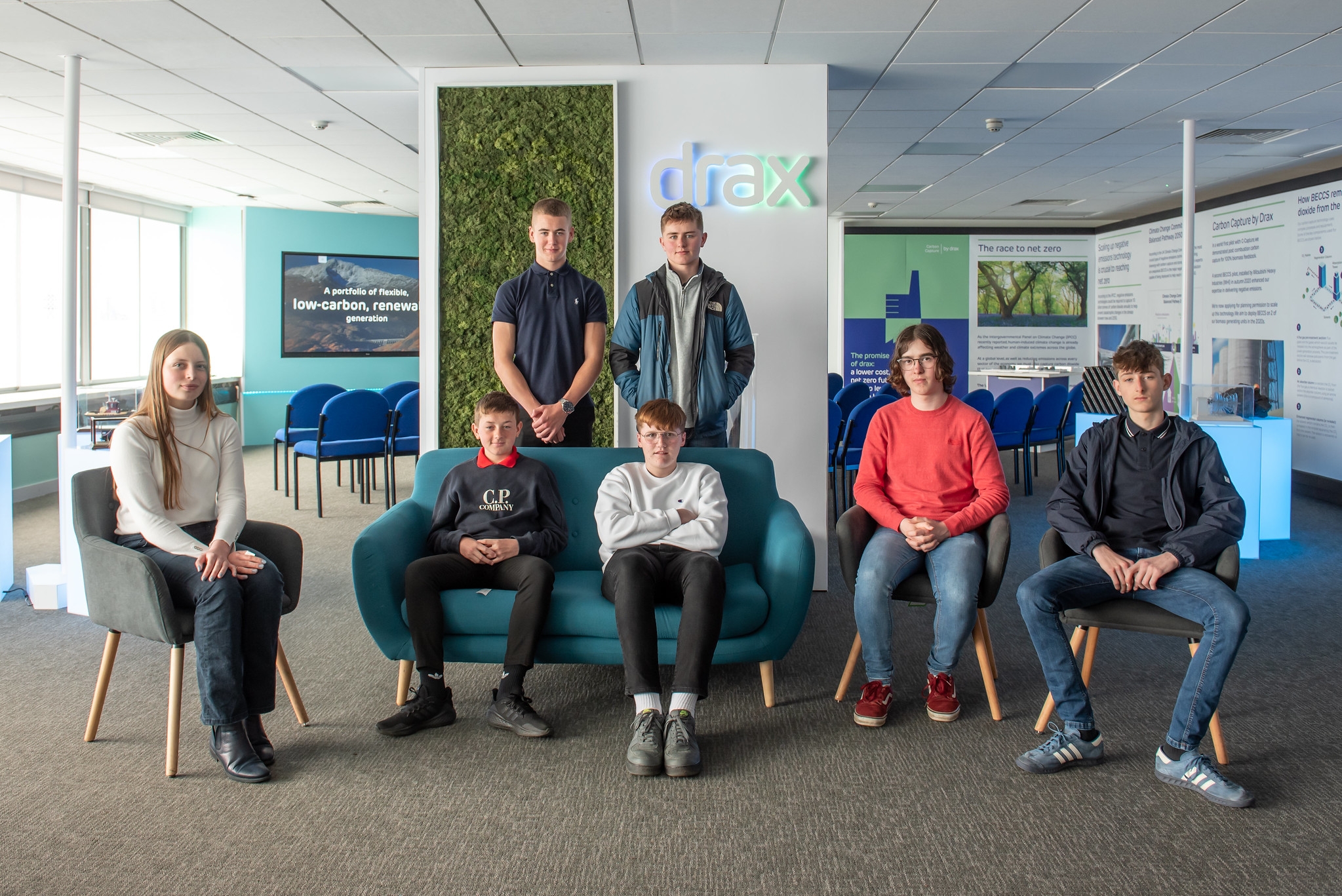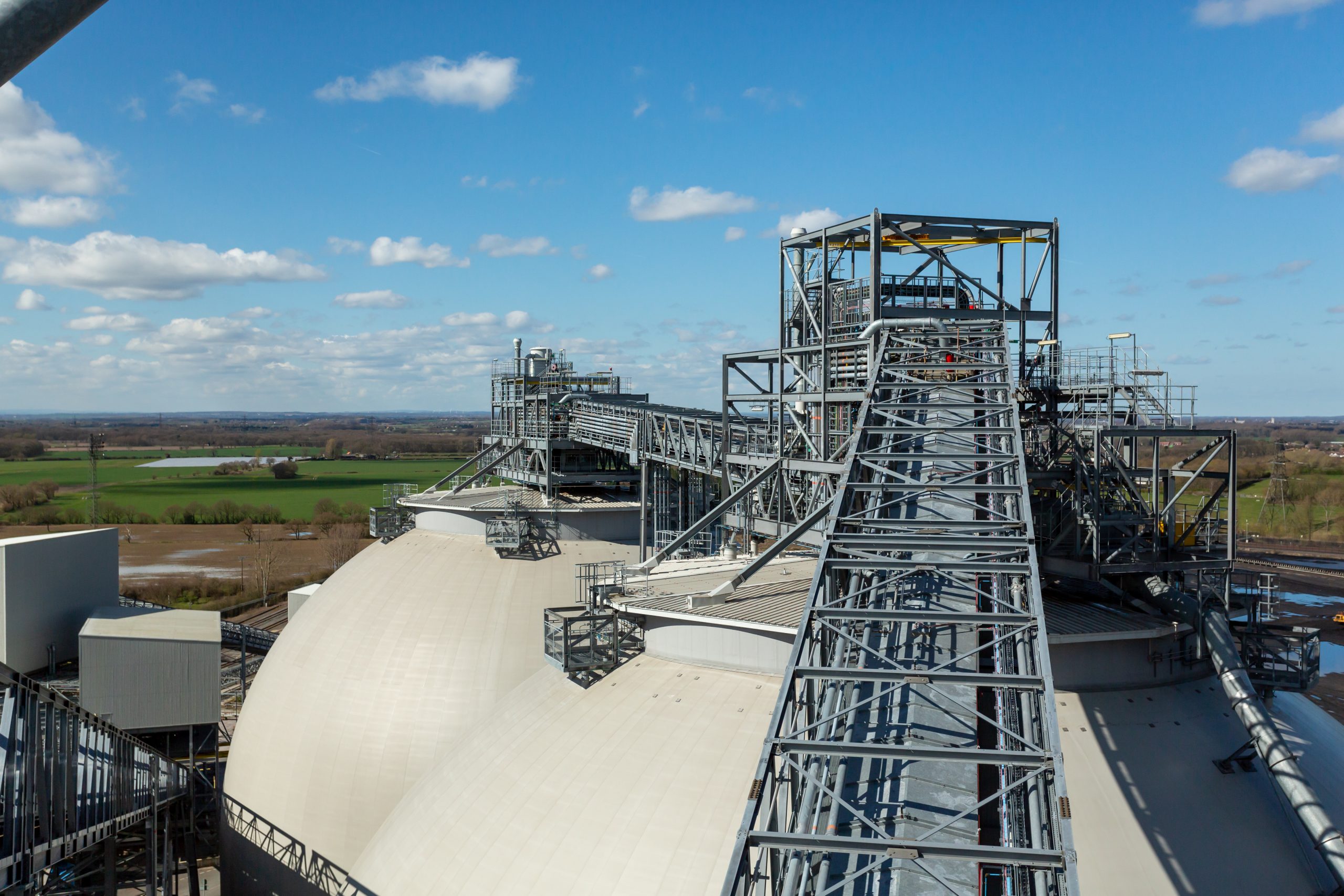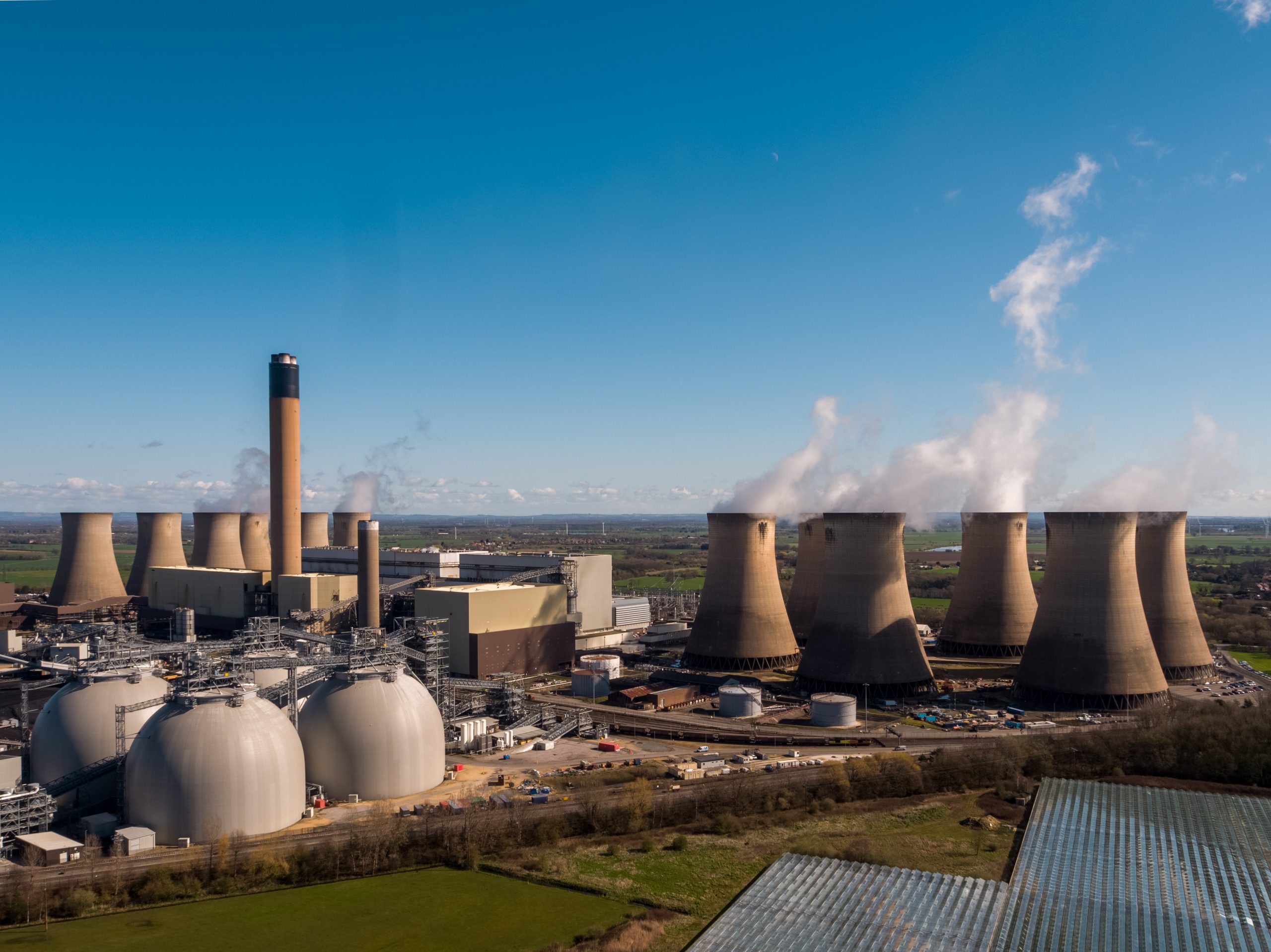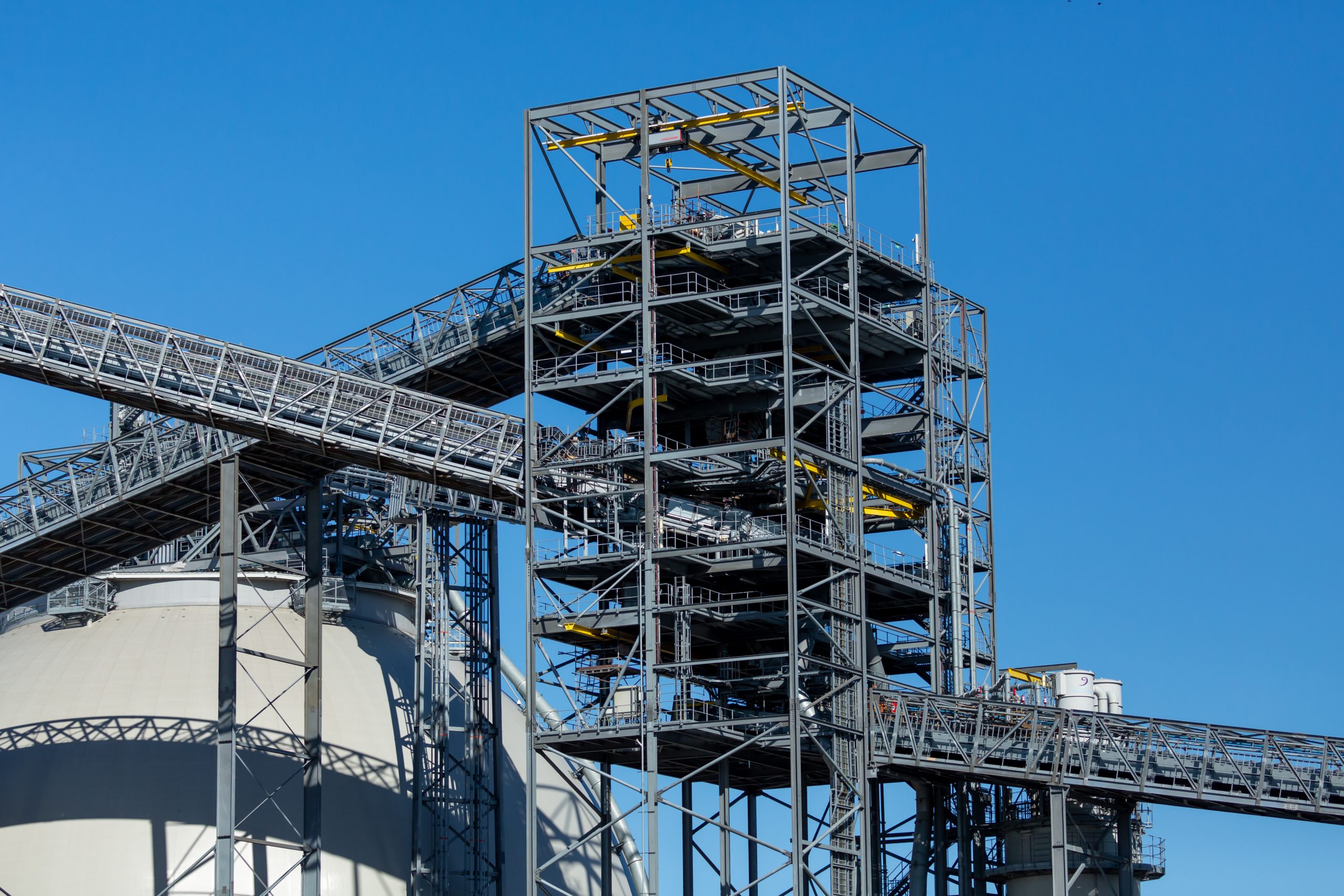
Mr Gray gave his backing to the industry while visiting Drax’s iconic ‘Hollow Mountain’ Cruachan Power Station near Oban in Argyll, where the renewable energy giant is progressing plans to build a new £500m underground pumped storage hydro plant at the site. Expanding the UK’s pumped storage hydro capacity is crucial to integrating more wind and solar power onto the energy grid, enhancing the nation’s energy security while tackling climate change.
Pumped storage plants act like giant water batteries by using reversible turbines to pump water from a lower reservoir to an upper reservoir which stores excess power from sources such as wind farms when supply outstrips demand. These same turbines are then reversed to bring the stored water back through the plant to generate power when the country needs it.
Despite the critical need for them, no new plants have been commissioned in the UK since 1984, with existing support schemes for other technologies unsuitable for the unique needs of these large-scale infrastructure projects. A report by KPMG found that a cap and floor mechanism, like the regime used to incentivise investment in cross-border interconnectors, could overcome the hurdles currently blocking investment in long duration storage technologies.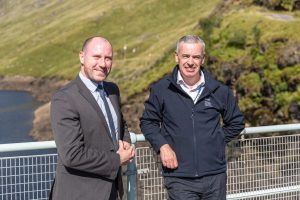
Ian Kinnaird, Drax’s Scottish Assets Director, said: “To achieve a safe and secure net zero power grid, we need to have a new generation of pumped storage hydro plants to balance our grid.
“As the UK increasingly relies on intermittent renewables to keep our lights on, there is a growing need for flexible power sources to plug the gap when the wind doesn’t blow, or the sun doesn’t shine. With its reversible turbines, Cruachan can also store excess power from Scotland’s wind turbines when they are generating more renewable electricity than we need, helping to stop valuable green power from going to waste.
“With the right support from the UK Government, Drax will invest £500m to more than double Cruachan’s generating capacity and support almost 1,000 jobs across the supply chain during construction.”
Scottish Government Energy Secretary Neil Gray MSP said:
“Scotland is a global leader in the production of renewable energy, which will play an increasingly important role in the transition to a net zero electricity system by 2045.
“However, pumped hydro storage, an important low carbon technology, is currently ineligible for UK Government support. UK Government inaction on this issue represents a significant obstacle to progress and risks failing to secure economic benefits, such as creating thousands of good quality, green jobs.”
Earlier this year, a report commissioned by the influential trade body Scottish Renewables found that a new generation of pumped storage hydro plants in Scotland could create almost 15,000 jobs across the UK, with Drax’s Cruachan expansion generating almost half a billion pounds for the UK economy.
Drax acquired Cruachan alongside the Galloway and Lanark hydro schemes in 2019, helping to make the company a leading provider of flexible, renewable power generation.
ENDS
Media contacts:
Aidan Kerr
Senior Media Manager
E: aidan.kerr@drax.com
T: 07849090368
Editor’s Notes:
- Drax applied for development consent from the Scottish Government under Section 36 of the Electricity Act 1989 in May 2022.
- The plans received consent through the Section 36 process in July 2023.
- The UK Government has pledged to introduce a new policy and market support framework to enable private investment in large-scale, long-duration storage projects by 2024.
- A report by KPMG for Drax found that a Cap & Floor regime was the standout solution to unlock private investment in the technology while incentivising system needs to be met efficiently.
- No investment decision has yet been taken by Drax and development remains subject to an appropriate regulatory framework among other considerations.
About Drax
Drax Group’s purpose is to enable a zero carbon, lower cost energy future and in 2019 announced a world-leading ambition to be carbon negative by 2030, using bioenergy with carbon capture and storage (BECCS) technology.
Drax’s around 3,000 employees operate across three principal areas of activity – electricity generation, electricity sales to business customers and compressed wood pellet production and supply to third parties. For more information visit www.drax.com
Power generation:
Drax owns and operates a portfolio of renewable electricity generation assets in England and Scotland. The assets include the UK’s largest power station, based at Selby, North Yorkshire, which supplies five percent of the country’s electricity needs.
Having converted Drax Power Station to use sustainable biomass instead of coal it has become the UK’s biggest renewable power generator and the largest decarbonisation project in Europe. It is also where Drax is piloting the groundbreaking negative emissions technology BECCS within its CCUS (Carbon Capture Utilisation and Storage) Incubation Area.
Its pumped storage, hydro and energy from waste assets in Scotland include Cruachan Power Station – a flexible pumped storage facility within the hollowed-out mountain Ben Cruachan.
The Group also aims to build on its BECCS innovation at Drax Power Station with a target to deliver 4 million tonnes of negative CO2 emissions each year from new-build BECCS outside of the UK by 2030 and is currently developing models for North American and European markets.
Pellet production and supply:
The Group has 19 operational pellet plants and developments with nameplate production capacity of around 5 million tonnes a year.
Drax is targeting 8 million tonnes of production capacity by 2030, which will require the development of over 3 million tonnes of new biomass pellet production capacity. The pellets are produced using materials sourced from sustainably managed working forests and are supplied to third party customers in Europe and Asia for the generation of renewable power.
Drax’s pellet plants supply biomass used at its own power station in North Yorkshire, England to generate flexible, renewable power for the UK’s homes and businesses, and also to customers in Europe and Asia.
Customers:
Drax supplies renewable electricity to UK businesses, offering a range of energy-related services including energy optimisation, as well as electric vehicle strategy and management.
To find out more go to the website www.energy.drax.com






